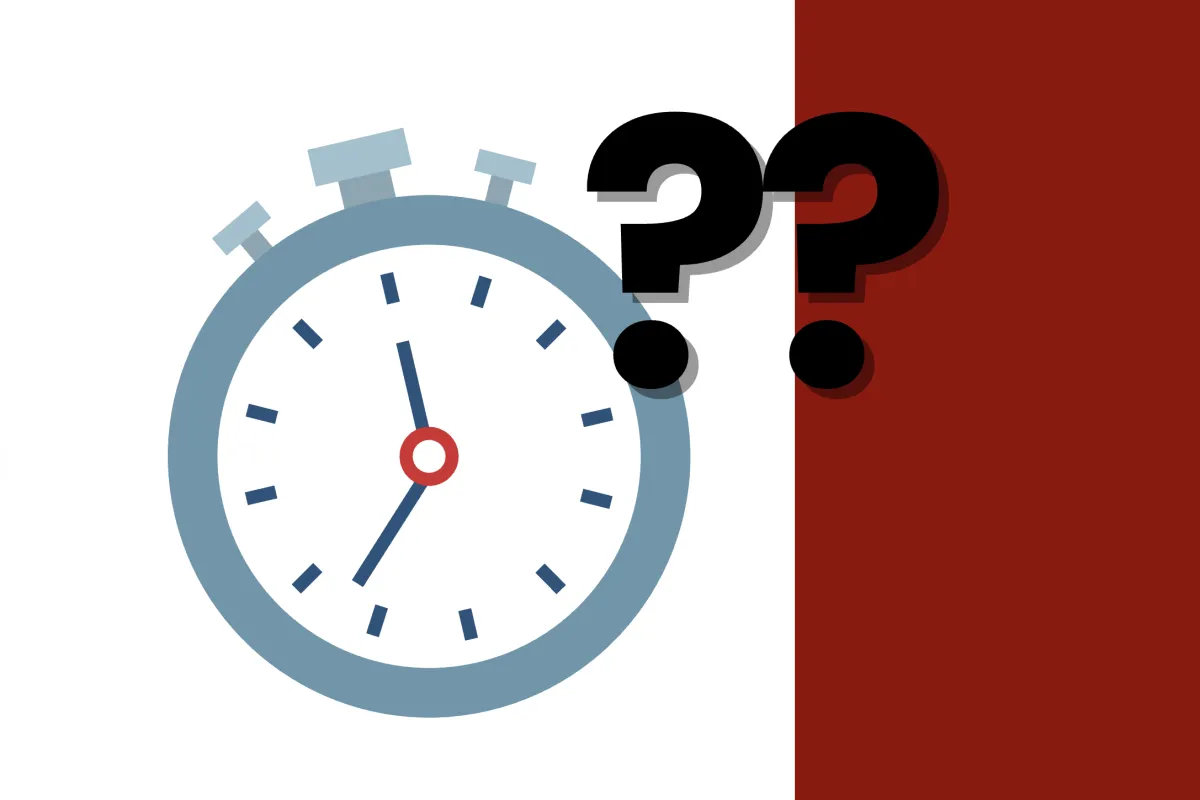
How Early Should You Prepare for the SAT?
"How early should I start preparing for the SAT?"
It's one of the most commonly asked questions from both parents and students. In this article we'll get to the bottom of exactly how early you should start studying for the SAT based on these factors:
Your score-improvement goal
How much time you have to study per day
Before we fully get into it, I need to address one common misconception, which is that it takes hundreds of hours of studying, and thousands upon thousands of practice questions. In fact, a 2017 study found that a 130 point increase only required 30 hours of focused studying! So if we translate that to roughly 3 - 4 minutes per question (including both time spent doing practice plus time spent reviewing mistakes), that means that average student only needs to do about 500 questions to improve their score by 130 points. Much less than most people expect.
Now, some people have goals to improve more than 130 points, and the benefit you get from each additional hour of studying slowly tapers off, so this means you couldn't necessarily study for 60 hours and expect a 260 points improvement. So going forward, we will have to take this into account.
Okay, so now that we have the numbers, let's figure out how far in advance you should start studying based on the key factors.
Your Score-Improvement Goal
Your score-improvement goal is simply the score you want to achieve minus your most recent score on either an official SAT test, an official PSAT test, or a practice test. If you don't have any of these numbers, I highly recommend taking a practice test, or better yet a free shortened diagnostic test that takes only 40 minutes, to gauge your starting point.
So for example if you took a diagnostic test and scored a 1300 and your goal score is a 1450, then your score-improvement goal would be 150 points.
Once you have this number, you already know exactly how many hours you'll need to study. Following the data from the study, here is a table for approximately how much you need to study for different score improvement goals:
75 - 90 Points: 5 - 10 hours of studying (~150 questions)
90 - 110 Points: 10 - 20 hours of studying (~250 questions)
110 - 130 Points: 20 - 30 hours of studying (~450 questions)
130 - 150 Points: 35 - 45 hours of studying (~750 questions)
150+ Points: 60+ hours of studying (1,000+ questions)
Now you know not only how much you want to improve by, but how much you need to study to reach the goal. The next step, then, is to figure out how much time you can dedicate to studying per week to figure out how long it will take you to complete all the hours.
Your Weekly Study Schedule
Your next step is to figure out the average amount of time you can dedicate to studying for SAT every week. This could be as little as 2 hours a week, and as high as 14 hours a week (we don't recommend studying for the SAT for more than 2 hours a day).
Let's walk through an example, using the goal improvement score we mentioned earlier of 150 points.
In this case, we know that we need to study at least 60 hours, so if we knew that we could dedicate 4 hours per week to studying, then we would need to begin our preparations at least 15 weeks out from our test date, or approximately 4 months out.
If instead we could only dedicate 3 hours per week, then this number would jump to 20 weeks, or approximately 5 months, out from our official test date.
As another example, let's say that we scored an 1100 and our goal score was a 1200. Our score-improvement goal here would be 100 points, which would equate to approximately 16 hours of studying.
If we could dedicate 4 hours of studying per week, we would want to start preparing at least 4 weeks, or month, prior to our test. If we could only dedicate 2 hours per week, this would jump to 8 weeks, or two months.
Important Considerations
Now that you have a rough idea of how far in advance you need to begin SAT preparations, let's talk about some other considerations you might want to take into account while deciding your study timeline.
Firstly, the data reported above is an average, meaning that it will not apply to every single student. If you know that you are a slower learner, you should probably give yourself 1.2 - 1.5x as many hours of studying.
Another important consideration is what your starting score is. In general, it is much easier to improve a score in the lower-end of the spectrum. The closer to a 1600 you are, the more studying it takes to improve.
We have worked with students that first came to us with a <1000 starting score who have improved more than 500 points in as little as 8 weeks. But this of course does not mean that a student could expect to go from an 1100 to a 1600 in just 2 months.
So if you want to improve by 150 points and your current score is a 1400, you should expect to need as much as 2 - 3x the amount of studying that a student who wants to improve by the same amount but is currently scoring an 1100 would need.
